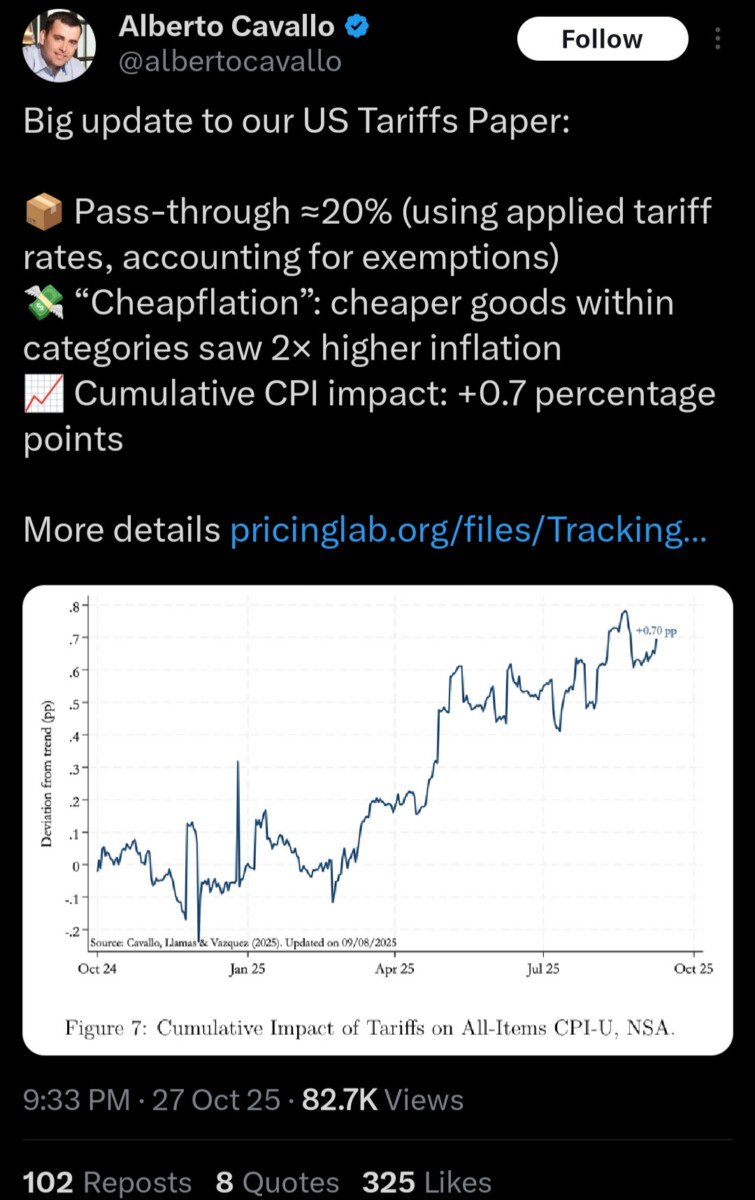
781. Hi Frequency Readout on Consumer Prices, Thru 12 October
An argument that consumer price index estimates are influenced by tariffs, highlighting data analysis through October 12.
your daily dose of economic commentary

An argument that consumer price index estimates are influenced by tariffs, highlighting data analysis through October 12.

An argument that everyday prices have increased by 2.2% since January 2025, highlighting trends in consumer price indices and specific sectors like limited service restaurants.
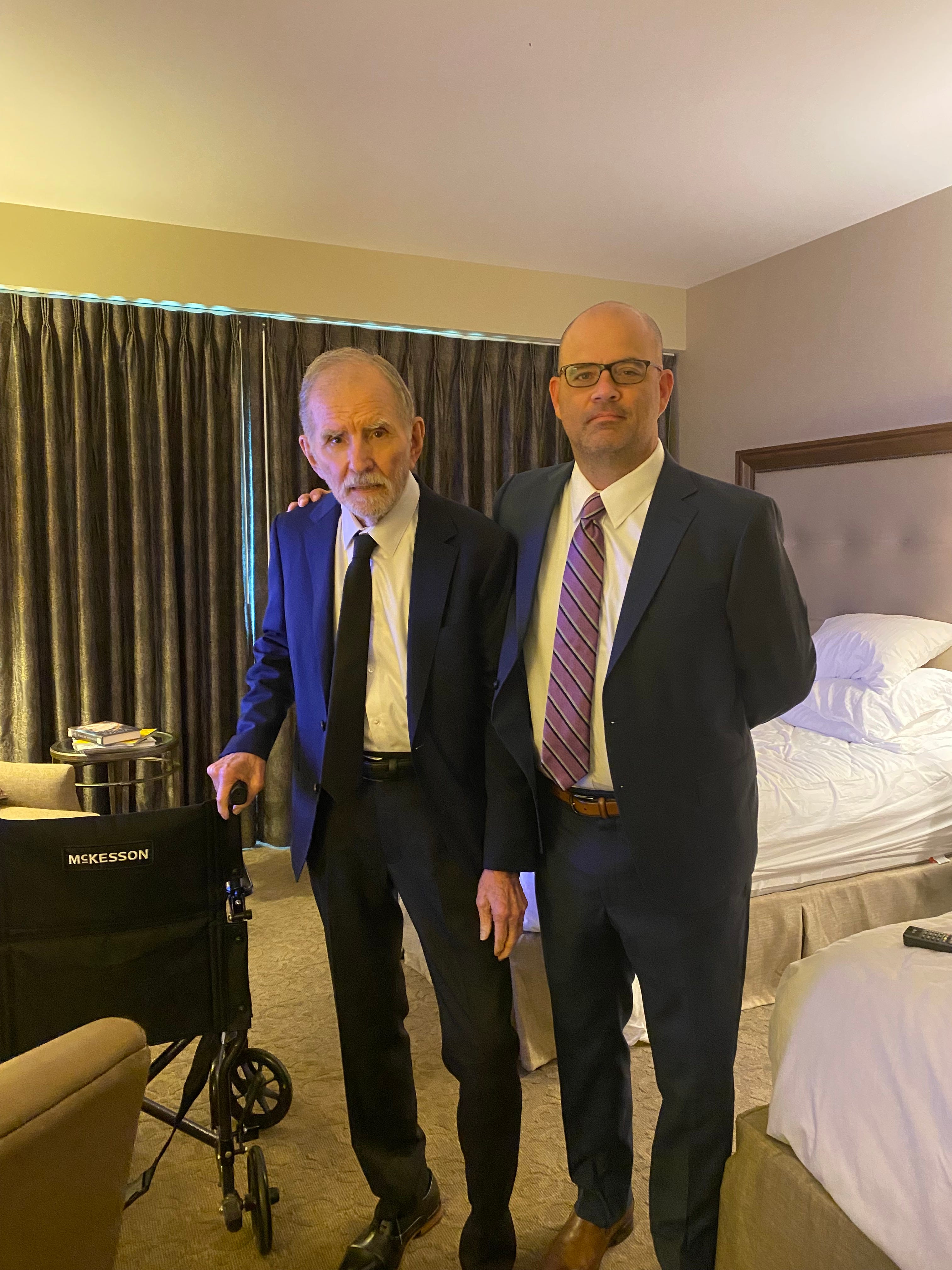
Scott Cunningham reflects on his father's life, detailing his journey from a small-town upbringing to a successful career in computing and family life.
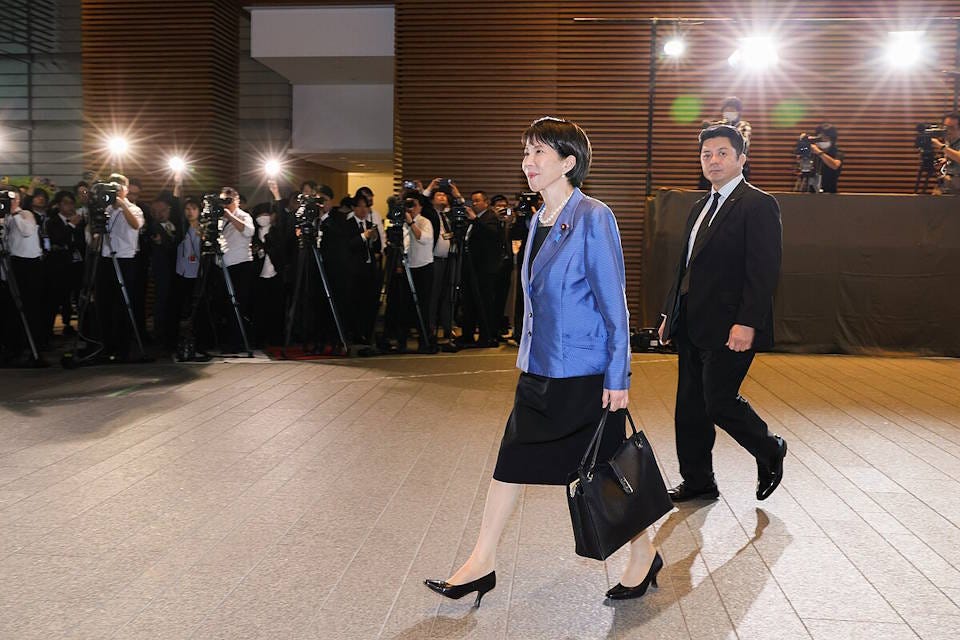
An argument that Takaichi Sanae's administration should focus on economic reforms to boost productivity and investment, while managing Japan's defense and international relations.

Mortgage applications rose significantly due to decreasing mortgage rates, with notable increases in refinancing and purchasing activity compared to previous weeks and last year.

Anthony Kuhn discusses President Trump's confidence in reaching a deal with China's leader ahead of their upcoming meeting.

An argument that the Federal Reserve may reduce interest rates due to emerging weaknesses in the job market, prioritizing employment over inflation concerns.
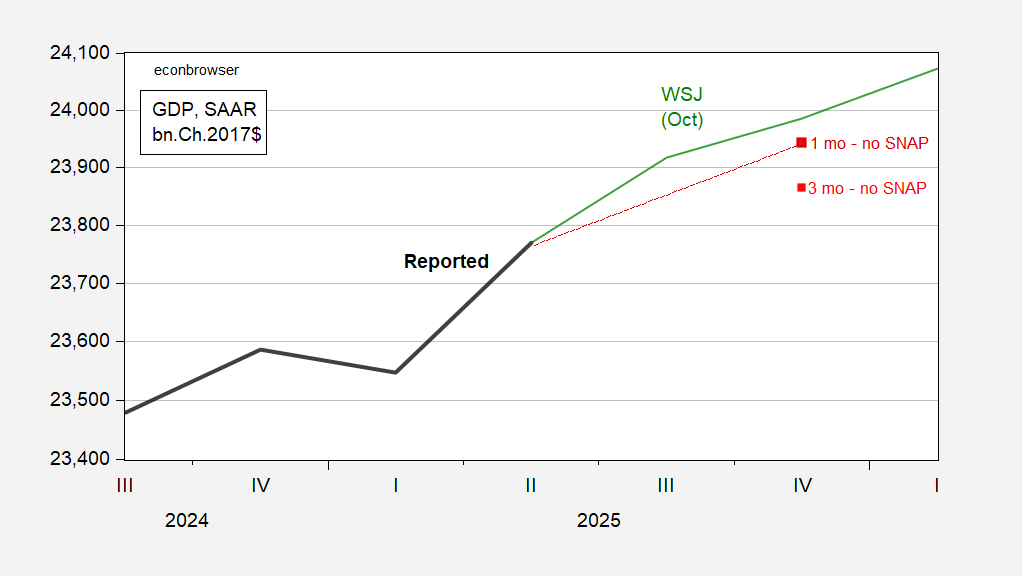
An argument that the prohibition of contingency funds for SNAP could negatively impact the economy, particularly during a prolonged government shutdown.

NPR Staff discusses the impact of the federal government shutdown on food and nutrition aid, inviting readers to share their experiences regarding potential loss of benefits.

Jadrian Wooten discusses various stories highlighting economic principles and their applications, including workplace toxicity, pricing, and educational economics.

An argument that house prices exhibit a seasonal pattern influenced by distressed sales, with recent trends showing increased seasonal swings despite fewer distressed sales.
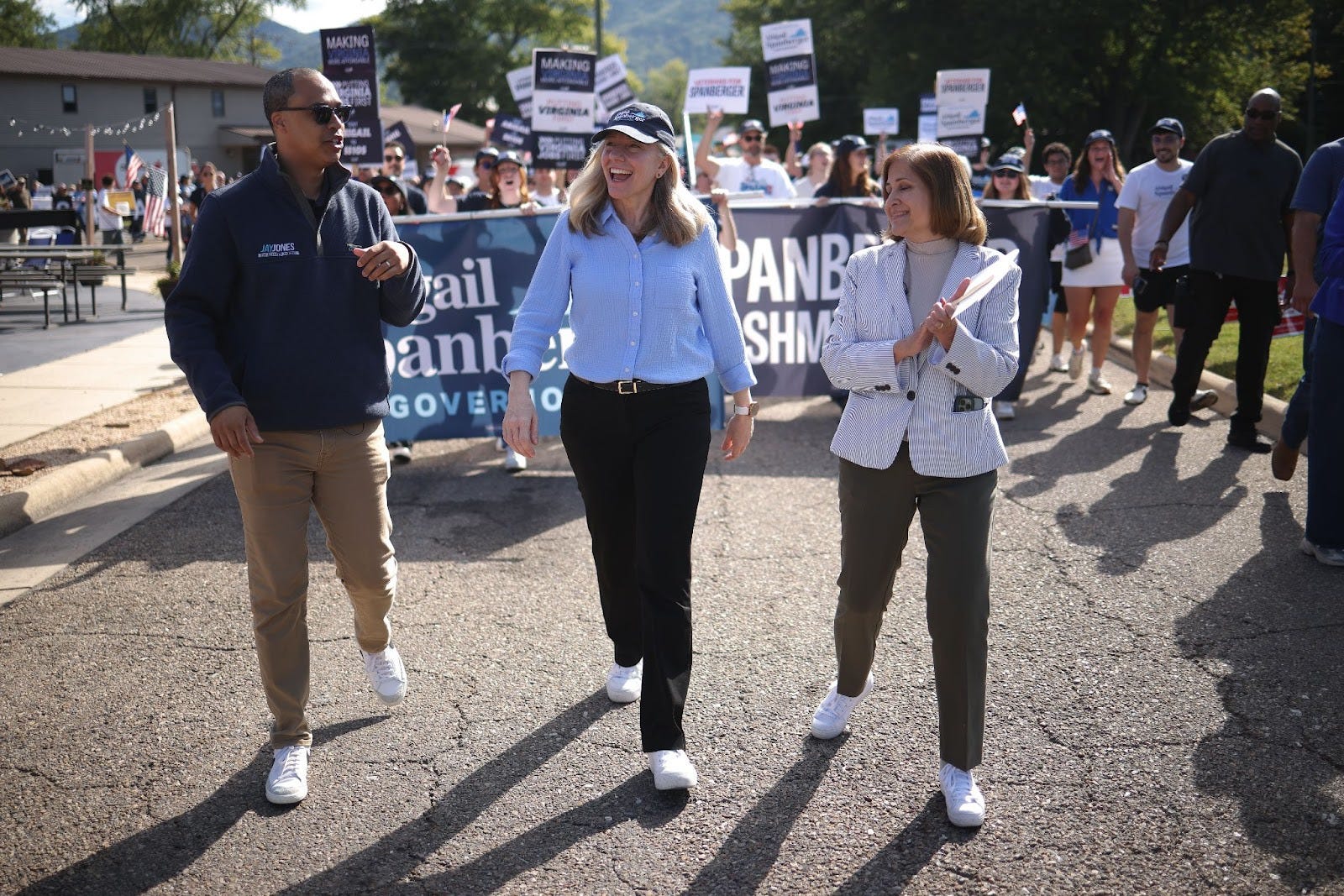
The post examines the impact of political scandals on elections, particularly focusing on a recent scandal involving a Virginia candidate and its implications for party dynamics.
Alex Tabarrok reviews films, highlighting their political themes and artistic merit, particularly focusing on "A House of Dynamite" and "Springsteen: Deliver Me from Nowhere."

Alina Selyukh discusses Amazon's job cuts as the company reallocates resources towards artificial intelligence amid investor pressure for financial tightening.
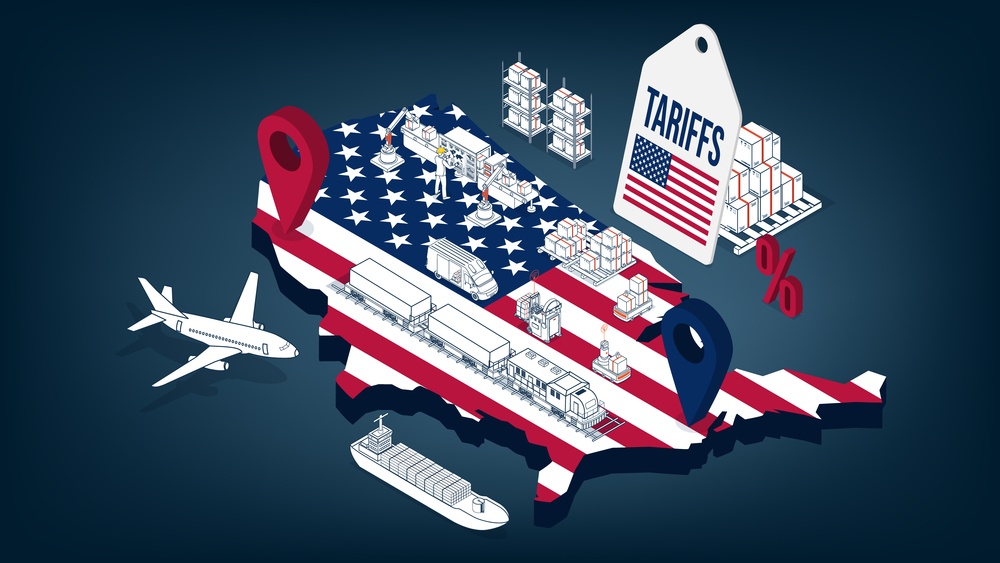
Jon Murphy argues that Adam Smith would disapprove of recent U.S. tariffs due to their non-compliance with his principles on trade and mercantilism.
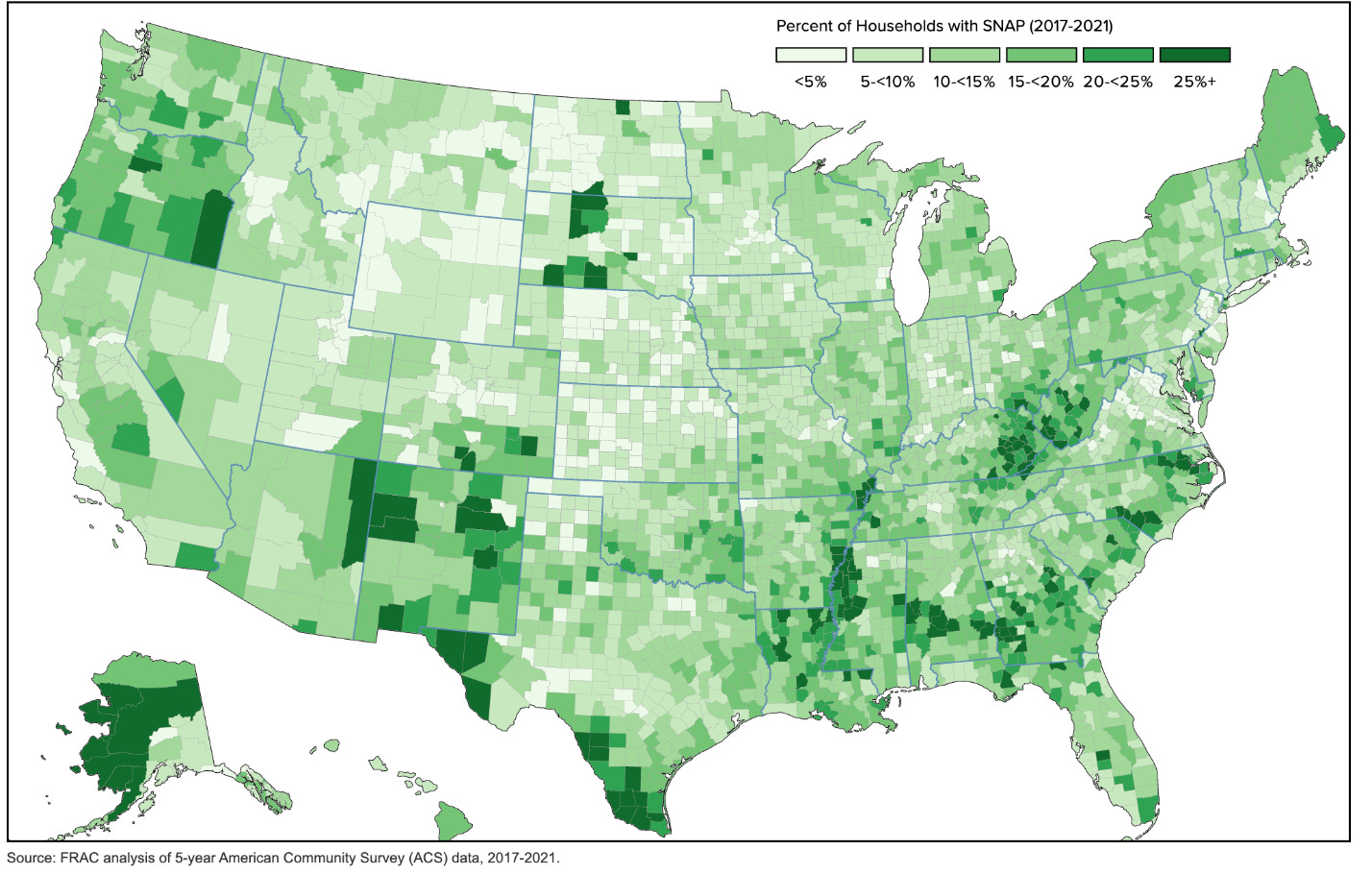
Paul Krugman discusses the implications of a potential government shutdown on SNAP funding and the political motivations behind it.

Noah Smith discusses the challenges facing the Trump administration and the Democratic Party's struggle to gain public support amidst rising Republican popularity.

Bill McBride discusses the August home price indices, noting a 1.5% annual gain and the impact of inflation on housing wealth.

Greg Rosalsky discusses how America's immigration policies are affecting the global remittance market and the financial implications for various countries.
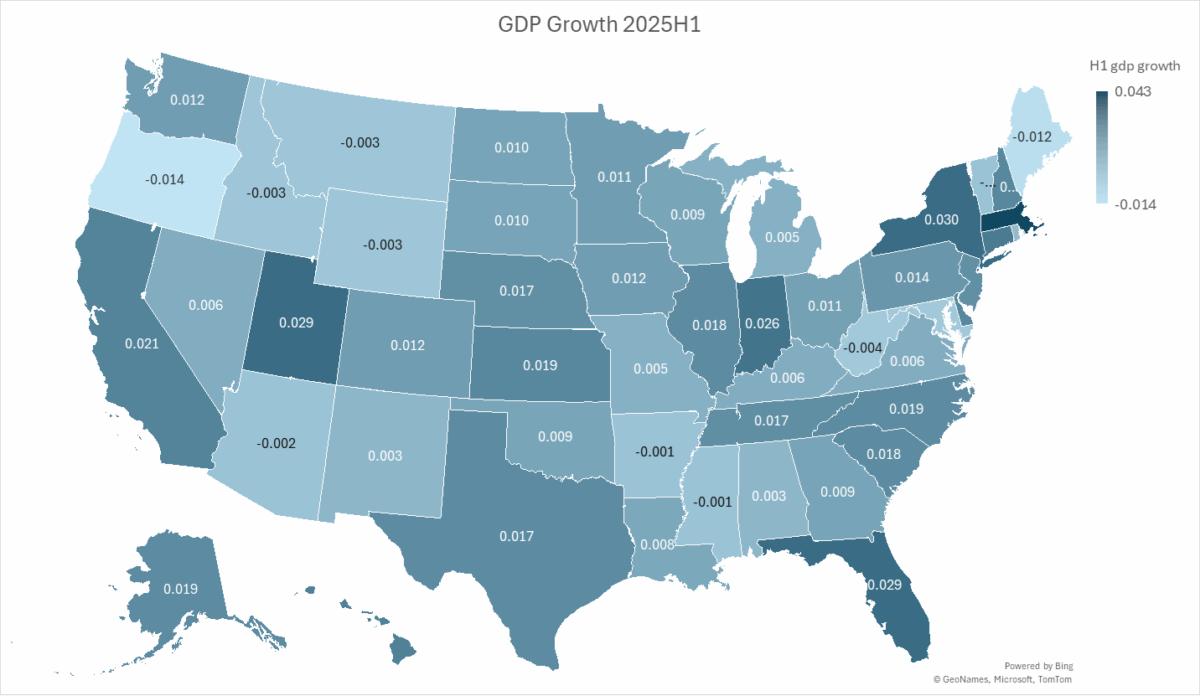
The post analyzes states with negative GDP and employment growth in the first half of 2025, highlighting discrepancies between GDP and employment trends.